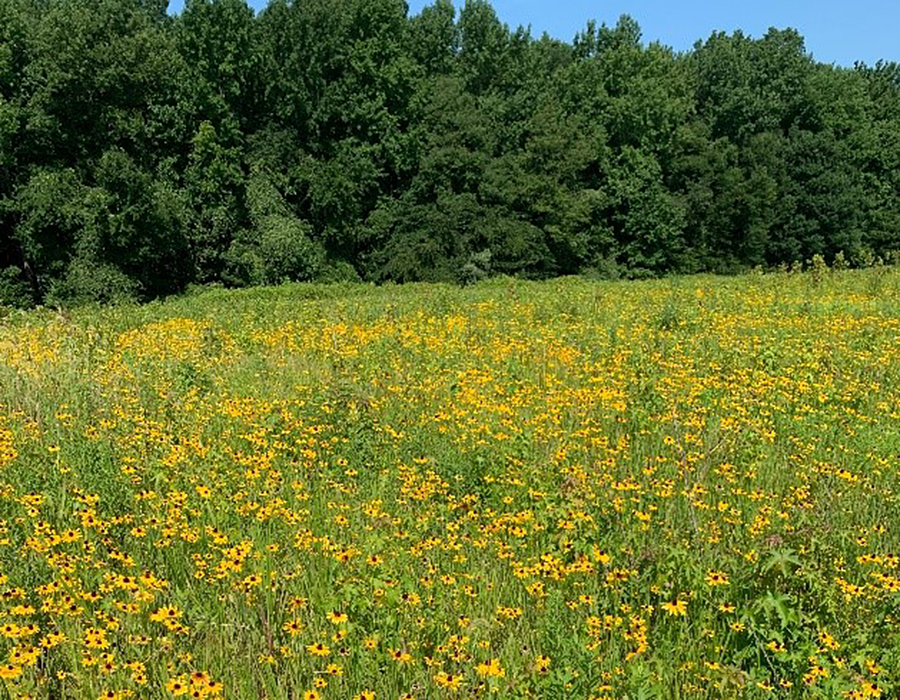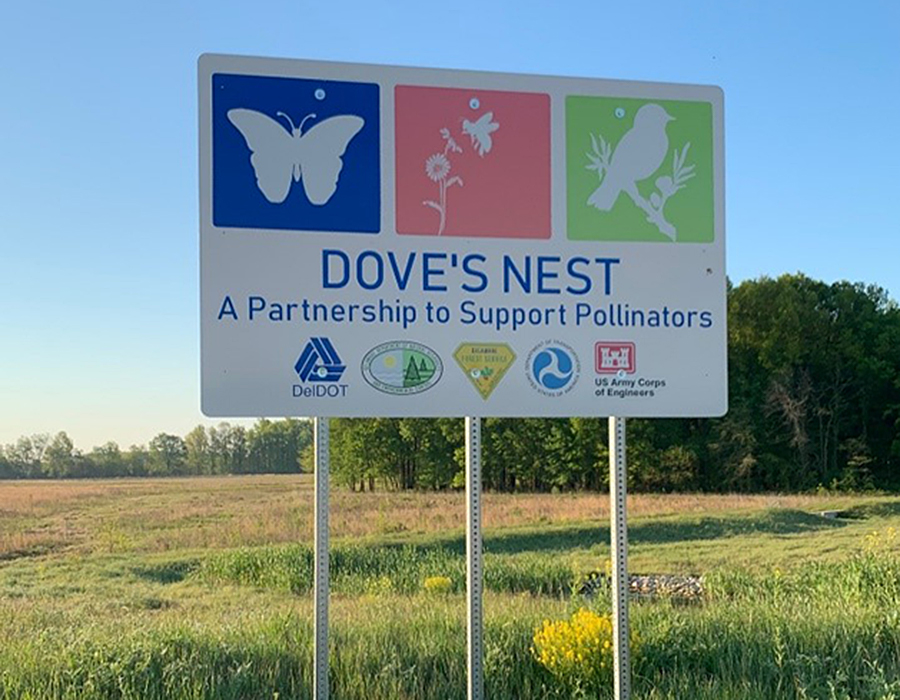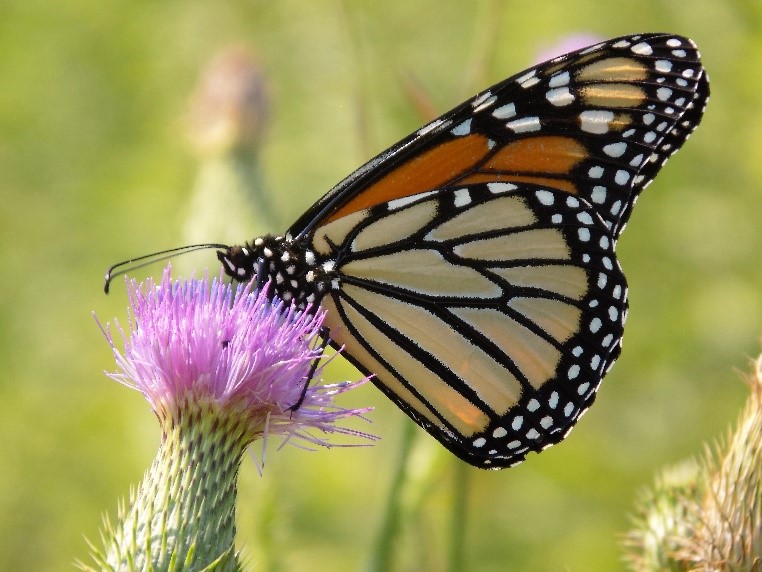Pollinators
Pollinators are an important part of the U.S.'s ecosystem and economy. Pollinators keep fruits, nuts, and vegetables fertilized through a process of moving pollen from one flower or plant to another. Only fertilized flowers can make fruit or seeds.
Pollinators include:
- Honey and native bees
- Butterflies
- Birds
- Bats
- Flies
- Beetles
Threats to pollinators have increased in recent years, including loss of habitat, pesticide and herbicide use, and disease, resulting in significant population declines of several pollinators. With the desire to ensure these important species have the resources they need to grow and sustain their population levels, transportation agencies across the U.S. have created programs within their departments to create, enhance, and preserve pollinator habitat.
Enhancing Delaware Highways: DelDOT is committed to performing work where feasible within our system to benefit pollinators. DelDOT's Maintenance & Operations department oversees the Enhancing Delaware Highways program, which has piloted several adaptive management strategies.
Dove's Nest: DelDOT's Environmental Stewardship Section, with the help of DNREC, the Delaware Forest Service, USACE, and FHWA, created Delaware's first-ever pollinator mitigation site: Dove's Nest. The meadow was part of required mitigation for the new US 301 project in New Castle County.
Dove's Nest Timeline
- Site Preparation
Winter 2018 - Prescribed Burn
March 2019 - Wildflower Seeding
April 2019 - Monitoring & Maintenance
Present
Dove's Nest was planted with native wildflowers that bloom across the growing season to ensure that pollinators have a food source all year long. Milkweed was also planted to provide breeding habitat for the monarch butterfly.


Monarch Butterflies: Monarch butterflies were petitioned to be listed under the ESA in 2014. The USFWS is scheduled to make a listing decision on December 15, 2020. The Environmental Stewardship Section is closely monitoring this and working to determine what requirements will be imposed on the Department, should the monarch be listed. Learn more here:








